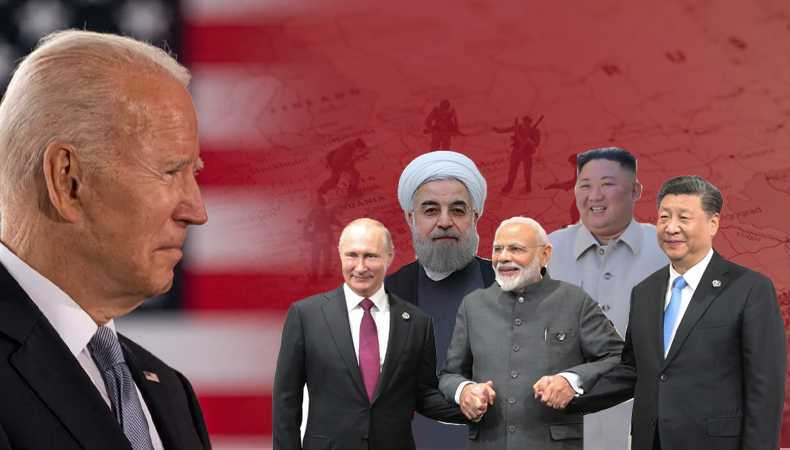The New World Disorder: Urgent Calls for a Global Paradigm Shift

After the war in Ukraine, the world’s geography underwent a fundamental upheaval that brought about the “New World Disorder.” As developing nations like China, Russia, India, North Korea, and Iran actively challenge the established order to shape the world to their interests, the once-dominant Western world has realised that it can no longer alone make the decisions. It becomes evident that we are at a pivotal point in history as tensions between these countries grow and the world behaves unanticipatedly.
The emergence of transnational networks and institutions that render conventional Western sanctions mostly ineffective is a notable result of the continuing geopolitical upheaval. By passing the US dollar’s hegemony in international trade, sanctioned oil suppliers like Iran and Russia have discovered alternate channels for exporting their products to nations like India and China. The world’s financial and geopolitical environment is changing dramatically due to this transformation, posing new difficulties and concerns for the West.
In addition, the growth of illegal networks and alliances has fostered a favourable climate for paramilitary and criminal organisations. States like Iran have increased their sway, creating satellite states run by their potent militias in neighbouring nations like Iraq, Syria, Yemen, and Lebanon. While international sanctions against banks and institutions in these governments are ineffective, this network allows the passage of illegal products. The likelihood that terrorist organisations may obtain WMD has drastically increased, seriously jeopardising international security.
In Central Asia, the transit of illicit goods is rampant. The region has developed into a significant hub for drug trafficking and other illegal activities, and front companies have been established to facilitate the flow of supplies for the Ukraine war. This lawlessness puts food and energy security in danger, which could result in starvation and poverty for many developing countries.
The US and China are engaged in a technical conflict based on artificial intelligence, microchips, and semiconductors at the same time. The rivalry between these countries makes it more difficult to restrict the transfer of Western technology into troubled areas, like the continuing crisis in Ukraine. As tensions build, a new period of an arms race is approaching, raising the possibility of mutual deterrence or, worse yet, a third world war.
At the heart of this crisis lies the urgent need for conscientious world leaders to reevaluate global affairs rules. A formula for calamity is the pursuit of self-interest at the expense of everyone else. International relations, trade, and technology transfer need to be governed by new laws that are strictly upheld. Instead of reverting to violence and brinksmanship, nations must identify common ground and engage in discourse.
It is more important than ever to cooperate. To address the issues brought on by the New World Disorder, we must work together to oppose terrorism, conflict, and anarchy. We must take prompt, firm action in light of the ominous realities of the world our grandchildren will inherit. Failure to do so could lead to a chaotic and uncertain future for humanity.
The international community has a chance to work together, learn from the past, and create a new foundation for global security, even though the road ahead may appear intimidating. We can only expect to traverse these difficult waters and open the path for a more just, safe, and prosperous world via collective effort and a sincere dedication to international collaboration. The destiny of humanity is at stake, and the time for change has come.




